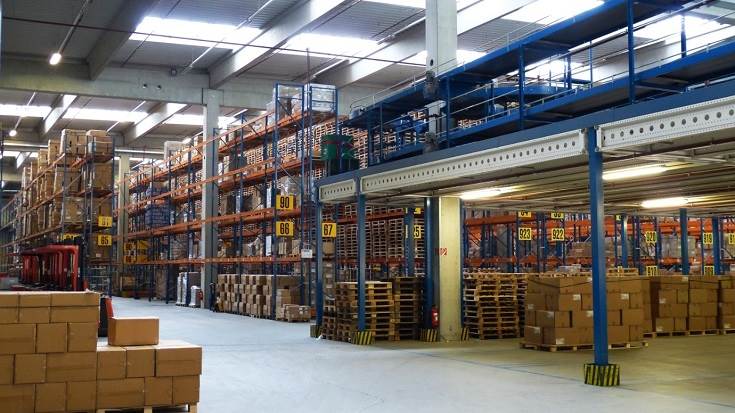Upskilling – The Panacea for Logistics Success
At a time when logistics are becoming vital to economic growth, the industry needs to focus on broadening the skill sets required for global excellence

By Sudeshna Sen Sharma
India’s logistics sector is currently witnessing a massive transformation, driven by the seamless integration of technology. However, the sector, entrusted with orchestrating the movement of goods and services across the country, also finds itself at a critical crossroad. And this is where logistics companies can learn some lessons from other industry verticals.
The fusion of technology and logistics operations underscores the need to address the growing skills gap through strategic skill upgrading. Drawing inspiration from the technology sector, logistics companies can embark on a transformative journey, enhancing their workforce’s digital and tech skills to embrace a future defined by operational efficiency and technological prowess.
Empirical evidence of this shared commitment to skill development emerges from surveys conducted by ManpowerGroup, revealing that a remarkable 71% of global organizations are intensifying their focus on upskilling and reskilling initiatives. This collective emphasis underscores their understanding of skill enhancement as a transformative catalyst.
The World Economic Forum’s 2023 Future of Jobs Report echoes this sentiment, forecasting that by 2027, six out of ten workers will need to acquire new skills to effectively fulfill their roles. However, a glaring challenge arises, as only about half of these workers will have access to adequate training opportunities.
Crafting a Specialized Skill Set for Logistics Companies
As logistics companies stand on the threshold of seamlessly integrating technology, a customized approach to skill development becomes imperative. These skills, intricately aligned with the ever-expanding logistics landscape, will be pivotal, much like the significance of Supply Chain Data Analytics.
The mastery of data analysis within logistics holds immense importance, enabling employees to identify trends, enhance route optimization, forecast demand, and allocate resources with precision. This, in turn, magnifies the overall efficiency of the supply chain.
In the realm of logistics automation, the skill of managing and seamlessly integrating automation and robotics systems becomes indispensable. It is about how the balance is maintained between artificial intelligence or automation and the jobs or roles that cannot be replaced by robots, and will still require human intervention, judgment and years of experience.
Of course, before plunging into this realm, enterprises need to have a solid grasp of foundational cybersecurity, given the growing instances of data breaches. Employees must possess the ability to pinpoint potential vulnerabilities and actively contribute to upholding the security and integrity of sensitive logistics data.
To combat this challenge, logistics companies are adhering to industry standards and regulations, such as GDPR and ISO 27001, to maintain data security and customer trust. This is over and above the need for proficiency in fleet management software, which is mission critical to ensure timely deliveries.
This expertise empowers employees to effectively monitor vehicles, fine-tune routes, and guarantee punctual deliveries, ultimately elevating the levels of customer satisfaction. Therefore, companies like Kuehen+Nagel continue to roll out development programs and training to accelerate their employees’ growth in the organization and put a specific focus on identifying skill requirements for the digital age.
A noteworthy competency emerges in the form of collaborating with technology solution providers. The art of effectively communicating with software vendors, hardware suppliers, and technical support teams is essential to ensure the smooth integration of new technologies. This proficiency is pivotal for harmonizing the adoption of novel technological solutions.
The Forward Trajectory for Logistics Companies
In response to the transformative trends, logistics companies are actively crafting comprehensive strategies to enhance the digital proficiency of their workforce. Leading this effort are tailor-made training programs which these companies are running. These are meticulously designed to cater to specialized skills that are currently in high demand. They take center stage, endowing employees with the evolving proficiencies necessary to stand out in the ever-changing logistics sector.
To bridge the gap between theory and practical application, logistics companies are forging ‘Academic Collaborations’. By partnering with educational institutions, they ensure that graduates possess skill sets finely tuned to meet the shifting demands of the logistics industry. This collaboration not only enriches theoretical knowledge but also translates it into valuable real-world competencies.
Furthermore, facilitating seamless transitions to new roles and technologies, Internal Mobility is a key aspect of the strategy. This practice nurtures an adaptable workforce, one that can effortlessly pivot to embrace novel responsibilities and advancements in technology. Such an approach nurtures a culture of perpetual learning, fostering an environment in which employees thrive amidst dynamic challenges.
At the heart of this culture of continuous improvement are Skill Sharing and Mentoring initiatives. Seasoned employees take on the role of mentors, guiding their peers and accelerating the integration of digital tools and technologies. This dynamic exchange of knowledge occurs within the organization, enriching the collective understanding and propelling the organization forward.
Embracing a Holistic Future: Navigating the Logistics Landscape
As technology seamlessly converges with logistics, the trajectory of the logistics industry hinges on the symbiosis of digital proficiency and skill development. Logistics firms are primed to equip their workforce with the specialized skills essential for sustained success. Through strategic investments in training, forging academic partnerships, and nurturing internal talent, the logistics sector charts a confident course into an era defined by digital efficiency and innovation. The journey towards a tech-savvy workforce is well underway, illuminating a logistics landscape empowered by specialized skill sets.

(Disclaimer: The author works as the HR Director at Kuehne+Nagel, responsible for people development in India, Sri Lanka and Maldives. The opinions expressed herein are those of the author and do not necessarily reflect the views of the publication.)








